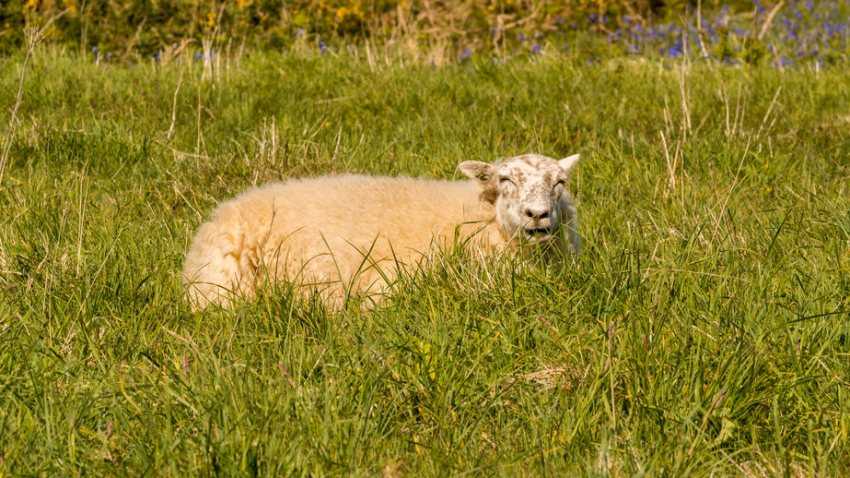
Farmers have hit back at claims from new research that suggest traditional farming methods should be halted, with trees planted where sheep now graze.
The suggestions come from a new report by the University of Sheffield that claims British sheep farmers would profit from allowing their grasslands to regenerate into forest.
The study says most sheep farms in the UK are unprofitable without subsidies, but farmers could make a profit if they use their land for tree planting.
It found that farmers would no longer need to rely on subsidies if they allowed native trees to return to their land and sold credits for the carbon dioxide (CO2) the forest absorbs.
The National Sheep Association said it 'strongly disagreed' with the report, saying there were a 'number of fundamental flaws'.
NSA Chief Executive Phil Stocker explained that the report assumed all sheep farmers were still receiving the old style of subsidy, but in reality farmers did not get subsidies anymore.
"They were withdrawn over 10 years ago with the transition to the basic payment scheme from previous production support," Mr Stocker said.
"Since then farming businesses have received government income, but in recognition for keeping land in good environmental and agricultural condition, and for doing specific environmental works through schemes such as Countryside Stewardship.
"This became a public investment in incentivising and rewarding good environmental land management."
He added: “We are now on the verge of another step in the evolution of farm support and are moving more clearly towards reward for ‘public goods’, things that farmers deliver and that society value but that can’t be recouped from the normal marketplace.
"So sheep farming is not subsidised, farmers are increasingly simply being rewarded to deliver wider goods that the public value.”
The report's authors found that farmers with at least 25 hectares of land could turn a profit if they allowed it to naturally regenerate into native woodland and were paid as little as £3 per tonne of CO2.
If farmers were paid £15 per tonne of CO2 by businesses and individuals looking to offset their emissions, forests of any size would make a profit.
But Mr Stocker said that expecting sheep farmers to give up farming sheep and plant forests 'ignored two basic facts'.
"Firstly sheep farming is more than just a business, it is part of our culture and heritage and farmers get huge pride and satisfaction from farming sheep.
"Secondly, it’s really easy for scientists to justify the planting of forests through a carbon calculation alone because it is easy to measure how much carbon is in a tree and then apply an offset value.
"What these scientists ignore is that we have to look at land management on a multi- functional basis, not just one metric of carbon."
